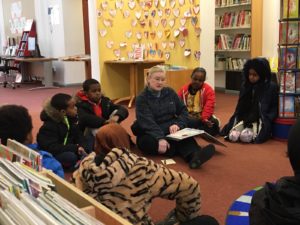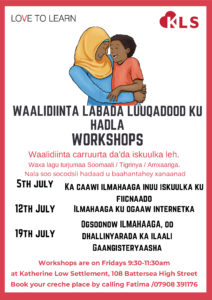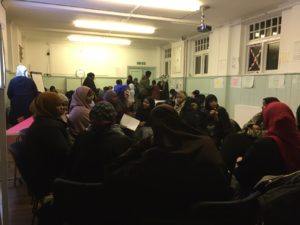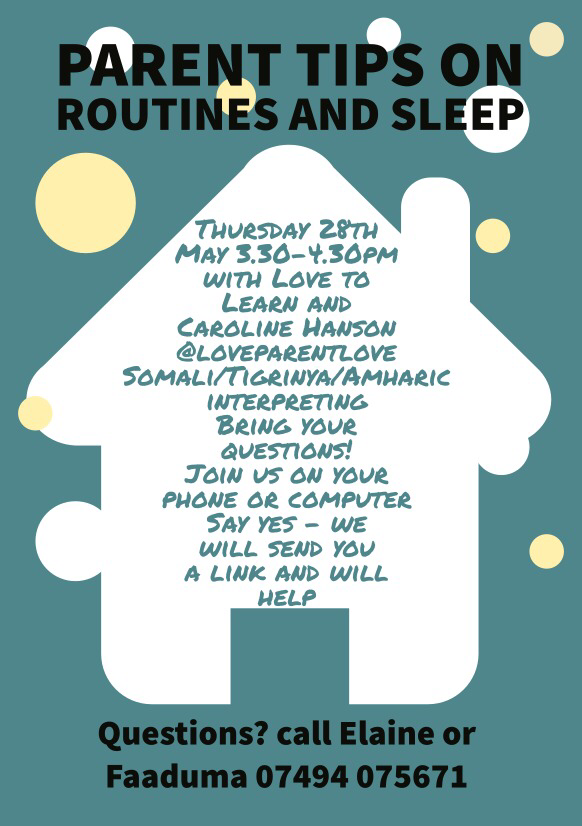One year on: A review of our Love to Learn Team’s Family Support & Casework
We’ve just completed an annual review of our family support casework team, which is part of our Love to Learn education programme. We wanted to share what we’ve been up to over the last year.
What’s happening on the ground
Local refugee children and young people are experiencing increasing challenges in their education as disadvantage and poverty rises. This runs alongside low levels of additional support provided by schools and stretched Council and Health services. The families and young people we work with live in poor housing and on low incomes (on benefits or very part-time jobs). There is a high level of Special Education Needs (SEN). Communities are resourceful but many children continue to need our Love to Learn team’s support to not be failed by schools. It is early days in relation to the impact of the Timpson Review of school exclusions, but exclusions have been a bigger proportion of our work with families this year (17%), often related to additional needs. We are usually effective in engaging parents better with schools and pressing for more more realistic and helpful responses. Our work around SEN has also increased to 36%.
Impact of Covid-19
The Covid-19 lockdown has exposed the lack of resources our children and young people have. It has been particularly hard for our Unaccompanied Asylum Seeking Children (UASCs) who are suddenly without the connection and structure provided by school. Mery (one of our workers) is working almost daily with Southfields Academy to keep track of the young people, support their mental health needs, and keep them engaged in education. Most families and young people do not have sufficient IT to support home learning. We are liaising with schools, who cannot provide enough, and we are fundraising to provide more. We’re receiving more foodbank requests, working closely with Battersea Coronavirus Angels and Council services to ensure families and young people have the basics.
Our team, like everyone in the country, has been working from home over the last few weeks. We’ve increased our contact and support around home learning and parenting issues, as well as ongoing casework. We have moved our parent workshops online.
Headlines for 2019/20
Last year we supported 243 people, of whom:
- 102 children from 69 families accessing casework (176 individuals)
- 30 UASCs (Unaccompanied Asylum Seeking Children)
- An additional 24 students received support with their post-GCSE options
- 39 of these families were new, as were 12 UASCs, post-GCSE students and workshop parents (141 individuals)
- 93% of our family casework this year was self-referred
- 67% involved same language support (e.g. Somali, Tigrinya and Amharic)
- 17% included referrals to other agencies (e.g. benefits, housing, CAMHS)
- 36% of our cases have been shorter term (2-8 weeks)
Our new UASC work has mostly been with Southfields Academy’s International Group (whom we’ve worked with for years), with young people newly arrived from Eritrea and Ethiopia. Our language skills are relied on in the classroom and we resolve many issues for students that underpin their education (from health and immigration problems to discouragement and cultural misunderstanding at school).
Parent workshops
We delivered a popular parent workshops series in July 2019. 26 parents attended one or more session on: *Help your child to flourish in school, *E-safety, *Be gang aware.
- 6 families attended a half-term visit to our local library.
- Our recent sessions on Zoom: *Parenting in Lockdown and *Home Education in Lockdown have been well attended too.
- 40 families took part in our Love to Learn’s summer 2019 trips – read all about them here.
Feedback
In the autumn term we carried out a feedback exercise with 33 parents. Parents commented on what had been helpful and could improve.
- 70% parents said we had solved the problem they had raised fully. 30% said this was solved partially or was in progress.
- 82% were fully satisfied with help received (5 out of 1-5), 18% scored 4.
22 of these parents and 36 children attended an additional family feedback discussion session. Here parents commented on what had been helpful and what could improve. There were many positive comments and a few suggestions for improvement.
Some notable successes
- Enabled a young person with autism to stay in a school where he was happy (via tribunal)
- Avoided permanent exclusion and gaining an Education, Health and Care Plan for a 10 year old already excluded by other schools
- Supported an 18 year old through an emotional and lengthy process seeking the release of his 15 year old sister from prison in Egypt
- Linked challenged children and young people with Love to Learn’s Learning Mentors for weekly support

Case Study: Naaz struggling at school
It might help bring to life what we do with a case study of a family that we’ve supported over the last year.
Naaz is 14 and in Year 9. She is of Somali background and has 5 siblings. S. has attended KLS’ Love to Learn’s Homework Club since primary school. We work closely with her mother Chanda who has accessed a range of support during the year. Her brother Mohamed, age 8, was allocated a Learning Mentor, from another part of our Love to Learn team, in January.
Naaz’s behaviour at Club had been deteriorating and Chanda was worried about how she was at home. We set up a meeting with the school’s SenCo in April 2019. We heard that Naaz was behind in many subjects and viewed as not making an effort. We requested an Education Psychologist (EP) assessment. Pastoral support was provided by school and we made a referral to CAMHS (Child and Adolescent Mental Health Service). We kept contact with the SenCo and supported Chanda and Naaz at meetings to discuss home-school strategies. We also requested more one-to-one support and an urgent EP assessment. Unfortunately, by September, Naaz was more frequently in “Reflection” and receiving fixed period exclusions. We requested Family Support but Chanda declined to proceed at this point.
CAMHS assessment started in November and in February the family was informed that Naaz had a significant learning disability – an ability for most subjects of age 7-8. We have supported Chanda and Naaz with this unexpected and upsetting diagnosis, and pushed the school for appropriate education during the process of applying for an EHCP (Education, Health and Care Plan) and probable specialist school. We are still waiting for the results of the delayed EP assessment. Naaz loves physical activities and before lockdown we arranged skate boarding and basketball sessions. We are enabling regular meetings between school and family, and currently have daily contact with Naaz and Chanda to check in and support a learning routine at home. We have provided books and craft activities. Chanda has now accepted family support.
Names have been changed to ensure anonymity.
Contact
If you are from a refugee background and need some help with your education then please call our Love to Learn team on 020 7585 0339 and [email protected]
